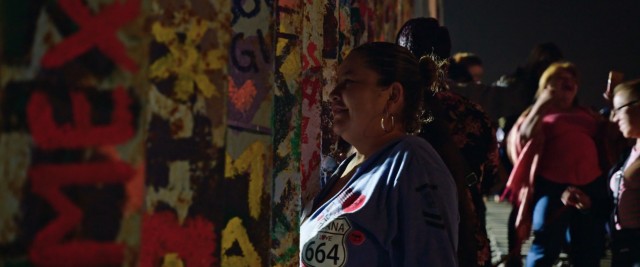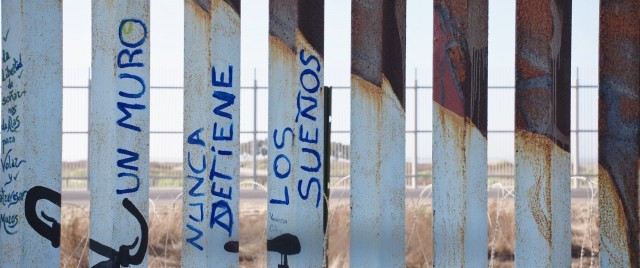In Geeta Gandbhir’s Oscar-shortlisted documentary Call Center Blues, we join a community of US deportees, adjusting to their new life just South of the border in Tijuana, Mexico. Having lost the life they used to know, four very different individuals describe their experiences of building a new beginning in a strange country, whilst working in a call center. Capturing a nuanced, layered portrait of the physical, emotional and psychological transient situation many deportees find themselves in, Gandbhir’s 25-minute short is a sobering, sensitive watch – it’s easy to see why it’s so highly rated.
“I was always aware of my place in society as a perceived outsider”
Call Center Blues touches on the many facets of the displacement experience, including how many of these deportees feel American (having spent most of their life in the US) even though they were never legally citizens. The idea of what it means to be an American has always been on Gandbhir’s mind, “As someone who grew up first generation in a large immigrant family of color, I was always aware of my place in society as a perceived outsider although I was born in the US”, the director explains.
With sensitivity, she gets her participants to share that side of their experience, the different reasons why they ended up in Tijuana and what their lives were like back in the US, the country they happily called home. Her four interviewees never shy away from touching on the good (what they have been able to build in Tijuana) and bad sides (still longing for the US) of their situation, as Gandbhir’s camera attempts to capture this complex state of mind.

Crowds gather at the border to watch the fireworks
As the director perfectly describes it, Call Center Blues is “a look at what it means to try to rebuild one’s life while trying to reconcile one’s love for a home country that no longer returns that love”. The last shot of the film, as they watch the fireworks through the wall, perfectly captures that sentiment.
Documenting this community of people unexpectedly forced to start anew, Gandbhir heightens her audience’s emotional engagement by ensuring her film is first and foremost a character-driven story. All four participants bring totally different perspectives to the experience, but it is their similarities that really pack the emotional punch.
Their personalities and vulnerabilities make it easy to empathize with their predicament, yet Gandbhir portrays them as strong people who, despite it all, are bringing positivity to their new community. This ray of hope not only makes the film feel more accessible, it also gives Call Center Blues an extra layer of depth, adding to its already compelling nature.

“A wall never details dreams” – a message on the border.
As Gandbhir’s story ends (with a poignant summarisation of borders from a young Mexican), we’ve learned that working in call centers may be the most logical path for those starting from scratch in Tijuana, but the director is sure to leave a bitter aftertaste of how this industry at the border is definitely capitalizing on that community. A story that will sound familiar for countless others, in similar situations around the world.
After its world premiere at SXSW in 2020, Call Center Blues made its way around the virtual festival circuit including a stop at the Palm Springs ShortFest, before being shortlisted for an Academy Award in the Documentary Short Subject category. It is currently being distributed by Topic. Geeta Gandbhir, who is already an established filmmaker, is currently working on a series for HBO, while also developing several feature films projects.

 Céline Roustan
Céline Roustan